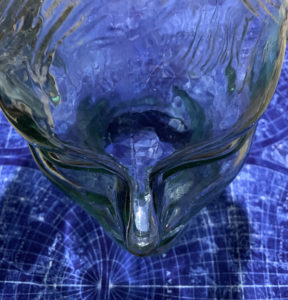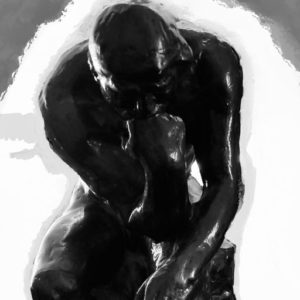 Thurston’s Thoughts
Thurston’s Thoughts
More Than a Feeling
Emotional Embezzlement
The term emotional embezzlement indicates feelings have been stolen. However, think of it in terms of emotional speculation which has been betrayed, swindled, or unwisely invested. Any restitution can only be punishment for unrealized future returns while ignoring the memories of past gains. The memories are forever ours but does the projected void devalue our emotional investment or benefit? Is this misappropriation a betrayal of stipulated or projected expectations because the decision to divest was not ours? The instance after the hurt has no ability to change the past, only question our perception of it.
In the vacuum of time, once violated it is forever lost to that capsule of time. The best that can thereafter be restored occupies a different time, space, or emotional state even if in the same period which is an expansion of separation. This larceny is judged by the degree and manner of execution whether the smash and grab or smooth criminal method was employed. Still, the actual loss remains the same, an emotional deficiency. We like to pretend otherwise especially as the perpetrators of the larceny because it somehow makes us feel better in a narcissistic sort of way.
Yet still, who among us has not felt the bitter sting of emotional larceny or hasn’t committed it? The victimization is always defined by the reluctance to accept the realization. Physically nothing is damaged but the psychological devastation can be unbearable to a physically sickening degree. This makes it a fraudulent act against our psychological wellbeing thereby being a damage of thought, feelings, or perspective. Others may trigger it but we surrender it. So we chase someone down the street to resist or recover our victimization eliciting the outrage of everyone who has ever felt the same bitter sting.
Everyone condemns the emotional double cross while we overlook the duality of the triple cross whereby we tricked ourselves or were even tricking them. The emotional triple cross started long before the cake of emotional immaturity or denial hit the floor or the guilty verdict is read. Regardless, a comprehensive emotional audit is mandatory to conduct a systems analysis and ego evaluation of our contribution.
Not because of them but despite ourselves. What about disappointment is so devastating that even revenge will not satisfy the brokenness of a Humpty Dumpty fragility to not express or accept the truth either spoken or demonstrated. The negation of any good or beneficial interaction is replaced by a spectrum hurt which indignation to revenge will not sooth. Inability to accept the truth makes it easier for the truth to be withheld or ignored.
Be careful not to cheat our expectations in the process of protecting someone else’s. That is the issue to be resolved, the balancing of subjective expectations. So is it better to have loved and lost than never to have loved at all? Is it better to wallow in oblivious bliss than the fairytale spell to have been broken? Therefore, reality is a cold shower only if you prefer to not shower in reality.
Could it be there are times when what someone does may be a result of what we are doing or refuse to do? Actions may speak loudly even if the words don’t or intended resignations are yet to be rendered.What if what we receive is what we are not doing which negates our complaint of what they are doing? It this a significant influence whereby one would be more accommodating if one were more accommodated.
So, if circumstances don’t allow for the truth why would they allow for a lie? If the lie is unbecoming the truth must be welcomed whether telling it or receiving it. So tell it and receive it. The inability of either is not an emotional embezzlement. It is an emotional bankruptcy of an insolvent understanding where the villain or superhero may be hard to distinguish. Lying is a bad choice but so is refusing the truth whether to yourself or someone else. Invest wisely because it is all speculation.
Thurston K Atlas
Creating a Buzz
